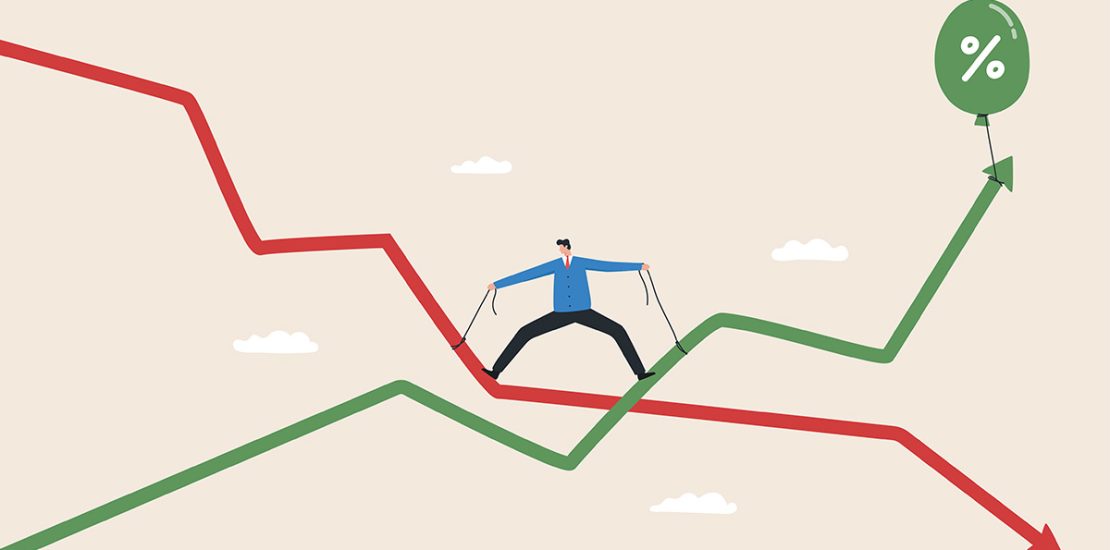- November 12, 2024
- Posted by: Regent Harbor Team
- Category: Global Economy

Contents
By McGregor McCance
The Advent of Change: Tariffs, Taxes, and Trade
As the winds of change blow through the corridors of the American Capitol, heralding the advent of Donald Trump’s second presidency, businesses should prepare for a seismic shift. With the Republicans firmly in control of Congress, changes from taxes to tariffs and trade regulations loom large. In the spirit of prudence, the Darden Report reached out to the esteemed experts at the Darden School of Business to gather insights. This piece explores the expected economic ripple effects and the resultant impact on various sectors.
Inflation Risks According to Rodney Sullivan
Let’s begin with an insightful discourse from Rodney Sullivan, the Executive Director for the Richard A. Mayo Center for Asset Management. Despite a moderated inflationary climate courtesy of increased productivity and a slowdown in the Chinese economy, inflationary risks remain. Notably, the Federal Reserve’s aggressive interest rate cuts, coupled with a unified Republican government, should prompt a critical review of inflation’s trajectory.
It’s a common notion that inflation is on a downward slope, aligning with the Fed’s target of 2% annually. However, expansive corporate and individual tax cuts under the Trump administration might derail this progress. Such a fiscal agenda, especially if unaccompanied by spending reductions, can potentially inflate the fiscal deficit. Moreover, the introduction of import tariffs by Trump aims to curb trade deficits and boost domestic production. While the aim is commendable, there lies the danger of retaliatory measures resulting in an inflationary spiral.
With stimulative fiscal and monetary policies and escalating import tariffs in play, we might witness an upsurge in economic growth and inflation. The Federal Reserve’s decision to lower the interest rate by a whopping 0.75 percent since September may have been overzealous. The bond market signals its unease as the 10-year Treasury yield rises. While economic resilience is bolstered by labour productivity gains, the pathway to sustainable economic growth demands caution.
The question on every investor’s mind is, understandably, how to traverse this uncertain terrain. The atmosphere for stock investors remains buoyant, helped by a pro-business climate that celebrates tax cuts. However, bond investors exhibit apprehension, reflecting in rising real yields prompted by expectations of nominal economic growth and burgeoning deficits. Therefore, a degree of volatility should be expected. Markets are grappling with policy uncertainty, and investors must brace themselves for some adjustments.
To safeguard against unforeseen inflation, a diversified portfolio is recommended. Treasury inflation-protected bonds (TIPS) serve as a viable option, adjusting to inflation changes while ensuring a fixed interest return. Other potentially beneficial assets could be commodities, real estate, and stocks, as their values often appreciate when inflation rises. Nonetheless, selecting the right combination to hedge against inflation is imperative in portfolio construction.
Effective Communications in Changing Times: Insights from Steve Soltis
In a different but equally significant vein, Steve Soltis, Darden lecturer and co-founder of strategic communications consultant Arvo Advisory, offers a perspective on corporate communications in times of change. Businesses were hardly caught off guard by the election outcome. Savvy corporate leaders had preemptively prepared comprehensive scenarios pertinent to either result.
Externally, most organisations in key sectors like healthcare and banking will prioritise communicating their resilience. It’s crucial to elucidate how they’ve fortified their business models and strategic plans for the 2025-2027 period to align with the new administration’s policies.
Internally, the messaging remains consistent as CEOs engage with employees, reiterating their unwavering commitment to core values like diversity and environmental protection. Vigorous media and public policy engagements, fuelled by government affairs, are expected, ensuring that businesses maintain a proactive stance.
Evolving Corporate Strategy: A Structured Approach
While an air of unease might surround these developments, panic is unwarranted. Astute businesses have foresightfully crafted plans and messaging to navigate this new territory. With strategic communication and precise execution, businesses can not only survive but thrive in this reshaped economic landscape.
In conclusion, as we look toward this new era shaped by policy shifts and economic fluctuations, preparation remains our best ally. Embracing structured strategies and fortifying portfolios against potential pitfalls will be essential in shielding against unforeseen economic tides.
For further reading, consider exploring the resources shared by Richard A. Mayo Center for Asset Management and Arvo Advisory.
